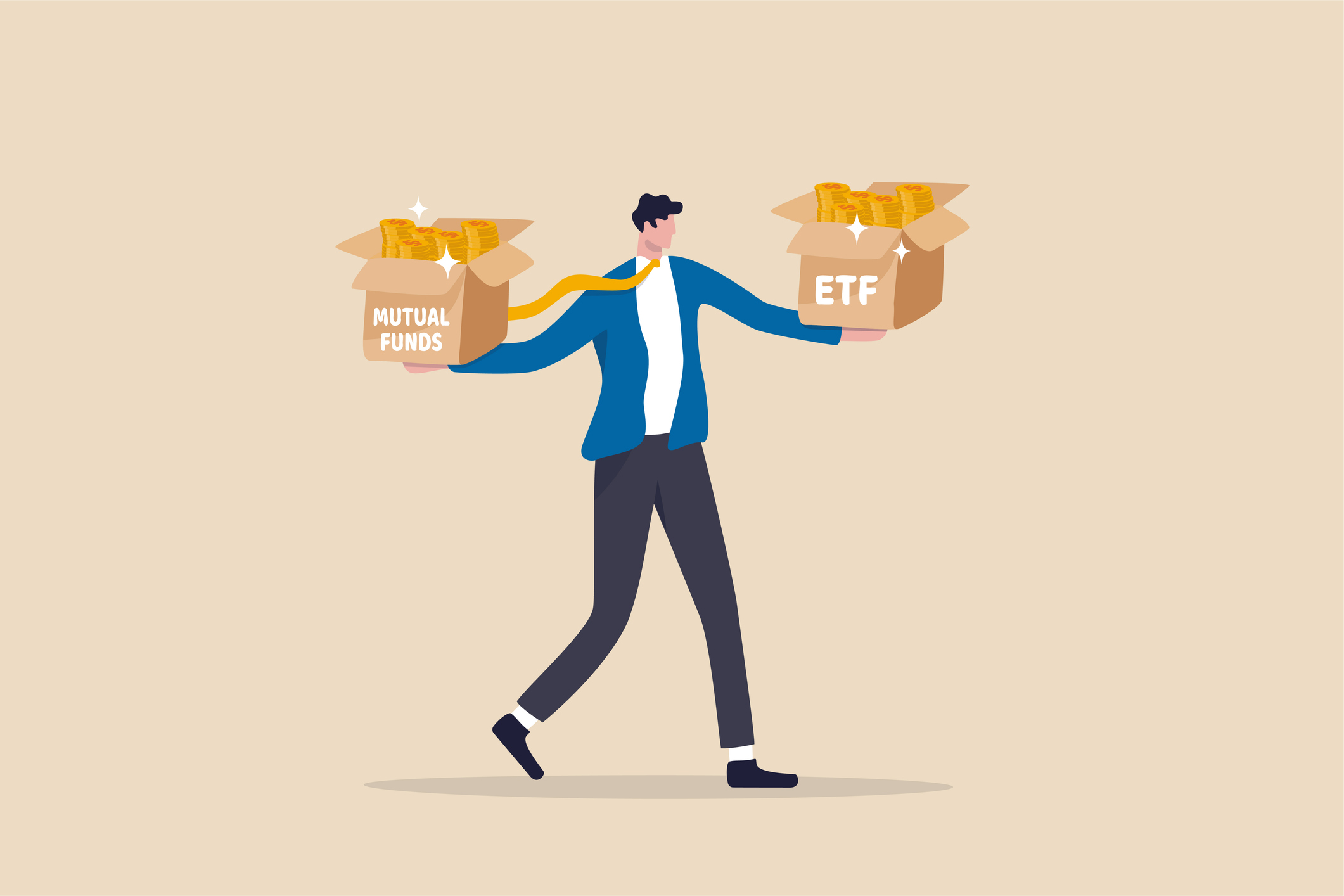What Happens to Lehman’s Customers?
Their assets are protected, but there is some risk for those who invested in the company’s mutual funds and exchange-traded funds and notes.

Profit and prosper with the best of Kiplinger's advice on investing, taxes, retirement, personal finance and much more. Delivered daily. Enter your email in the box and click Sign Me Up.
You are now subscribed
Your newsletter sign-up was successful
Want to add more newsletters?

Delivered daily
Kiplinger Today
Profit and prosper with the best of Kiplinger's advice on investing, taxes, retirement, personal finance and much more delivered daily. Smart money moves start here.

Sent five days a week
Kiplinger A Step Ahead
Get practical help to make better financial decisions in your everyday life, from spending to savings on top deals.

Delivered daily
Kiplinger Closing Bell
Get today's biggest financial and investing headlines delivered to your inbox every day the U.S. stock market is open.

Sent twice a week
Kiplinger Adviser Intel
Financial pros across the country share best practices and fresh tactics to preserve and grow your wealth.

Delivered weekly
Kiplinger Tax Tips
Trim your federal and state tax bills with practical tax-planning and tax-cutting strategies.

Sent twice a week
Kiplinger Retirement Tips
Your twice-a-week guide to planning and enjoying a financially secure and richly rewarding retirement

Sent bimonthly.
Kiplinger Adviser Angle
Insights for advisers, wealth managers and other financial professionals.

Sent twice a week
Kiplinger Investing Weekly
Your twice-a-week roundup of promising stocks, funds, companies and industries you should consider, ones you should avoid, and why.

Sent weekly for six weeks
Kiplinger Invest for Retirement
Your step-by-step six-part series on how to invest for retirement, from devising a successful strategy to exactly which investments to choose.
When Lehman Brothers announced that it filed for bankruptcy protection September 14, it raised a lot of big-picture questions about the market, the economy and the architecture of our whole financial system. Those questions are fair game all right. But what really matters is what the failure of the country's third-largest brokerage means to its customers -- the folks with a brokerage account, or investors in one of the company's mutual funds or exchange-traded securities.
First it's important to note that Lehman's parent company, Lehman Brothers Holdings, is the entity filing. The company's broker-dealer business and its mutual fund management business did not file, and both businesses are operating without interruption. You have access to your account and can trade or take any other action.
Lehman Brothers, the brokerage, will close its doors, but only after customer accounts have been transferred to another broker-dealer. Meanwhile, customer assets are, by law, separate from the broker's own accounts. So Lehman's troubles aren't yours -- except for the impact on the market overall, and by extension, your portfolio. The Securities and Exchange Commission made a point of saying that it was on-site, enforcing the rules to make sure Lehman has adequate liquidity and is protecting customer assets.
From just $107.88 $24.99 for Kiplinger Personal Finance
Become a smarter, better informed investor. Subscribe from just $107.88 $24.99, plus get up to 4 Special Issues

Sign up for Kiplinger’s Free Newsletters
Profit and prosper with the best of expert advice on investing, taxes, retirement, personal finance and more - straight to your e-mail.
Profit and prosper with the best of expert advice - straight to your e-mail.
What's more, Lehman, like all brokerage firms, is a member of the Securities Investor Protection Corp., a consortium that provides insurance to investors on their brokerage account if their broker goes belly up. But SIPC, which covers up to $500,000 in securities and $100,000 in cash, only kicks in when customer assets go missing -- usually because of theft, fraud or unauthorized trading. SIPC announced that as of September 15, all of Lehman's customers' assets were accounted for and that it didn't anticipate having to get involved in liquidating the firm.
Mutual fund investors who own shares in the company's Neuberger Berman funds (and Lehman Brothers funds, also managed by Neuberger Berman) can rest assured that their assets, by law, are segregated from the management company's assets and from those of its troubled parent. "Neuberger is essentially shielded," says Philadelphia fund consultant Burt Green. "Their assets are totally separate, apart and unreachable by the machinations of Lehman creditors. In that sense, nothing has changed for shareholders of the funds."
However, there is a risk that prized portfolio managers will depart. Lehman's investment management division has been on the block for a while, and rumors have been circulating that a private equity firm, maybe Bain Capital or Hellerman and Friedman, will be the buyer. "The key question is whether portfolio managers will wait out these transactions to reach a conclusion, or whether someone will take an offer from a known commodity to go somewhere else," says Geoff Bobroff, a fund consultant, from East Greenwich, R.I.
Neuberger Berman Genesis fund (symbol NBGNX) is among Neuberger's most popular, with some $12.6 billion in assets. The small-company stock fund, closed to new investors, has returned an annualized 14% over the past five years, an average of eight points per year ahead of the Standard & Poor's 500-stock index. Shareholders worried about defections might check out Third Avenue SmallCap Value (TASCX), up 10% a year over the same period.
Lehman is also famous for its bond indexes, which provide the benchmark for a host of exchange-traded funds offered by State Street, Barclay's and others. (Barclay's came close to buying struggling Lehman but withdrew.) If Lehman's indexes are bought and the licenses for them renegotiated by the new owner, there's a chance that ETF expenses could see a bump, but likely nothing noticeable.
Lehman's exchange-traded notes are a different, and sadder, story. Owners of these debt instruments issued by Lehman Brothers Holdings must stand in line with the parent company's other creditors for their share of what's left.
Lehman sold three exchange-traded notes under the Opta moniker: Opta Commodity Index (RAW), which provided exposure to energy, metals, agriculture and livestock; Opta commodity Index Agriculture (EOH), which focused on soybeans, wheat, coffee, sugar and cotton; and Opta S&P Listed Private Equity, (PPE). The ETNs haven't traded since September 12, 8 and 4, respectively.
ETFs we'd recommend as substitutes include Market Vectors Agribusiness (MOO), which closed down 7% at $41.35 on September 15, and PowerShares DB Agriculture (DBA), down less than 1% at $32.90.
The fate of the Opta ETNs highlights the vast difference in risk posed by the similar sounding ETFs and ETNs. While ETFs enjoy all the protections of a mutual fund, ETNs present a dual risk -- that of the underlying investment and the credit risk of the issuer. In Opta's case, says money manager William Koehler of ETF Portfolio Solutions in Overland Park, Kan., "you were basically banking on the full faith and credit of Lehman -- and Lehman has no faith and credit today."
Profit and prosper with the best of Kiplinger's advice on investing, taxes, retirement, personal finance and much more. Delivered daily. Enter your email in the box and click Sign Me Up.

Anne Kates Smith brings Wall Street to Main Street, with decades of experience covering investments and personal finance for real people trying to navigate fast-changing markets, preserve financial security or plan for the future. She oversees the magazine's investing coverage, authors Kiplinger’s biannual stock-market outlooks and writes the "Your Mind and Your Money" column, a take on behavioral finance and how investors can get out of their own way. Smith began her journalism career as a writer and columnist for USA Today. Prior to joining Kiplinger, she was a senior editor at U.S. News & World Report and a contributing columnist for TheStreet. Smith is a graduate of St. John's College in Annapolis, Md., the third-oldest college in America.
-
 The New Reality for Entertainment
The New Reality for EntertainmentThe Kiplinger Letter The entertainment industry is shifting as movie and TV companies face fierce competition, fight for attention and cope with artificial intelligence.
-
 Stocks Sink With Alphabet, Bitcoin: Stock Market Today
Stocks Sink With Alphabet, Bitcoin: Stock Market TodayA dismal round of jobs data did little to lift sentiment on Thursday.
-
 Betting on Super Bowl 2026? New IRS Tax Changes Could Cost You
Betting on Super Bowl 2026? New IRS Tax Changes Could Cost YouTaxable Income When Super Bowl LX hype fades, some fans may be surprised to learn that sports betting tax rules have shifted.
-
 3 Major Changes Investors Must Prepare for in 2026
3 Major Changes Investors Must Prepare for in 2026A possible stock market bubble. Trump accounts. Tokenized stocks. These are just three developments investors need to be aware of in the coming months.
-
 Government Shutdown Puts IPO Resurgence at Risk
Government Shutdown Puts IPO Resurgence at RiskThe IPO market has been sizzling in recent months, but the government shutdown threatens to put a short-term halt to public offerings. Here's why.
-
 Mutual Funds Are About to Get the ETF Treatment. Here's What It Means for Investors
Mutual Funds Are About to Get the ETF Treatment. Here's What It Means for InvestorsThe SEC is expected to decide soon whether mutual funds from dozens of providers can be offered as ETF share classes.
-
 SEC Cracks Down on Misleading Fund Names: The Kiplinger Letter
SEC Cracks Down on Misleading Fund Names: The Kiplinger LetterThe Kiplinger Letter The SEC rules aim to crack down on so-called “greenwashing” — misleading or deceptive claims by funds that use ESG factors.
-
 Best Banks for High-Net-Worth Clients
Best Banks for High-Net-Worth Clientswealth management These banks welcome customers who keep high balances in deposit and investment accounts, showering them with fee breaks and access to financial-planning services.
-
 For a Concentrated Stock Position, Ask Your Adviser This
For a Concentrated Stock Position, Ask Your Adviser ThisThere can be advantages to having a lot of stock in one company, but ‘de-risking’ can help avoid some significant disadvantages.
-
 Trusting Fintech: Four Critical Moves to Protect Yourself
Trusting Fintech: Four Critical Moves to Protect YourselfA few relatively easy steps can help you safeguard your money when using bank and budgeting apps and other financial technology.
-
 Three Financial Tips for Women’s History Month
Three Financial Tips for Women’s History MonthWomen still face unique economic and social challenges today, so here are some key things to consider that can lead to a more secure financial future.